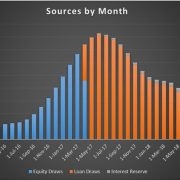Diversifying the Face of CRE with SEO | S3SP16
In today’s society, diversity and inclusivity have become important topics across all industries, including commercial real estate. As businesses strive to be more representative of the communities they serve, CRE professionals are also recognizing the benefits of a diverse team. To gain insights on the topic of diversifying CRE, we sat down with Angela Gorbold and Pamela McKoin from Sponsors for Educational Opportunity (SEO), who shared their experiences in the field.
Listen to this episode to hear their valuable insight into the importance of diversifying CRE and how SEO is working towards achieving more diversity in the industry.
Diversifying CRE with SEO
Or Listen to this Episode
Resources from this Episode
Episode Transcript
Announcer (00:01):
Welcome to the Adventures in CRE audio series. Join Michael Belasco and Spencer Burton as they pull back the curtain on everything commercial real estate, and introduce you to some of the top minds in the industry. If you want to take your skills to the next level and be part of a growing community of CRE professionals across the world, this is for you.
Sam (00:26):
Hello, and welcome back to another episode of the Adventures in CRE podcast. This is a good one today. We’ve been talking to a lot of tech entrepreneurs and people in the entrepreneurial space, but Adventures in CRE is all about education, education opportunities, getting the next job, whatever it is. Today, we’re joined by Pamela McKoin and Angela Gorbold of SEO. Now, not SEO, Search Engine Optimization, okay? That’s the SEO that people probably know, but SEO Sponsors for Educational Opportunities. I think this is going to be awesome. Spencer, go ahead and give us a quick little intro to the conversation today.
Spencer Burton (01:06):
Yeah, so first, how Angela and Pamela and I came to meet one another. They had connected with ACRE about helping with in interviewing bootcamp, let’s call it, preparing their students for the interviews that they’ll be going through in the coming months and years. It was such a fun exercise and I thought let’s get them on the podcast and talk about their mission, which is a phenomenal mission, something that first, ACRE would love to contribute to, but I think all of our listeners either could be participants in what they’re doing at SEO or help further the mission. Maybe we start, Angela, with you. Introduce SEO and your mission and in particular as it relates to real estate to the audience.
Angela Gorbold (02:00):
Hi everybody. SEO is essentially targeting undergraduate students who are currently in a four-year program. We specifically are looking for students who are underrepresented. Now that means LatinX, Black or Native American, and it’s a unique free service where we basically get you an internship in commercial real estate. We are really looking for students who are freshmen, sophomore or juniors, and it’s really as simple as going to her website and applying and then you get the pleasure of our team giving you everything from the technical training, the understanding of how the interview process works, coaching, mentoring, everything to land that dream internship.
Spencer Burton (03:03):
Pamela, let’s unpack that a little bit more. How did SEO, and SEO is what, a 60-year-old organization, get into this space, the real estate space? Or maybe give us a bit of history on SEO and track that to what Angela described as this incredible program for underrepresented professionals in real estate.
Pamela McKoin (03:23):
Our founder was a man named Michael Osheowitz, and he was a Wall Street banker. He realized in college that he met some students that really, their lives were changed by being a part of really competitive colleges, and he decided that that is something he wanted to participate in. 60 years ago, he started a mentoring program to help students get into college, and that has just grown. I think one of the really key things about SEO is that it has a real commitment to students and underrepresented and underprivileged children, but it also has evolved over time to create new programs. The career program started with not just high school students, but going into college students and helping them find internships. Again, originally for Wall Street, but we’ve expanded to get students in finance, corporate technology and real estate.
(04:21):
That came about through a partnership with the Pension Real Estate Association, PREA, who said, “We’d like to change the face of real estate and see more women and more people of color in our industry.” SEO had this long successful track record and has been highly recognized for its work, both with high school students and with college students and that’s how we began, and we’re going into our sixth year, and I think we had 30 students in the first year and this year, we’re at 140 and counting. We’re going to be somewhere between 140 and 150 students in our real estate program, so we’ve had a tremendous growth.
Michael Belasco (05:01):
Wow. Can you give us an overview of what the program entails? What people will go through if they get accepted into the program?
Pamela McKoin (05:08):
When we first get accepted into the program, Angela and one of our other CDAs, she’s the career development advisor, gives a welcome call. Why don’t you talk a little bit about the welcome call, Angela, and then we’ll get back to success.
Angela Gorbold (05:21):
Sure. The welcome call really is my first opportunity to get to know that student, figure out what are you studying? What are your motivations? Tell me your background. Do you have siblings? What’s your dream? From that initial conversation, I walk them through what I’m going to expect them to learn, the gaps in their resume, for example. We do interview prep, so after they get admitted, they work on their preparation for an interview, behavioral questions, technical questions. I like to talk through what the gaps are on the resume, and we give suggestions of what would provide a better lens for an employer being selected for interview.
(06:08):
Really, it’s just everything from a lot of coaching, a lot of support, somebody who genuinely cares. We offer coaching calls, so you can book one, you can book 20, it doesn’t matter, but we are real people spending our time and being very patient and caring and walking these students through the process, which for a lot of them, they have had zero experience. They don’t have people in their lives to talk about or model from, so a lot of it is just a lot of support.
Pamela McKoin (06:43):
We also create webinars for them both in that Edge Program. One of them was with ACRE just a month or so ago on interview practice and really working on your elevator pitch and of course, that’s really important. We also have some of the HR partners speak to the students about interviewing skills as well. Much of what we do in the Edge Program is also explaining what a career in real estate is. I think my first couple of years here, I would spend at least a quarter, if not a third of my time, letting them know what a career in real estate was. It’s not just a brokerage job. I don’t want to say just. Many people just believe that real estate is selling houses or leasing apartments and not knowing the whole commercial landscape. I mean, when you think about it, real estate is the biggest industry in the world because everything is housed in real estate, whether it’s your office space, whether it’s your entertainment space, whether it’s your home.
(07:41):
We really don’t think of it that way, but there’s a lot of opportunities and it’s a very broad opportunity set from architecture, engineer, legal, finance, asset management. That’s part of what we do, is helping them understand the career paths, as well as how to access those careers through internships. That’s the Edge Program. Once a student lands an internship, they go into what we call our Success Program where we go more intensely into the training. ARGUS, Excel, financial modeling, PowerPoint, and we supply them each with a coach. I think that’s what really distinguishes SEO. It’s always been a part of mentoring. Even our partners, we want people who don’t just write checks, but people who are willing to partner with us. We have coaches from the industry, so Angela and I, and we have another woman [inaudible 00:08:36] who works with us as a CDA, and we’re full-time with SEO, but we have coaches that work in the industry, that come and help our interview prep and then coach the kids while they’re on their internships, so those are the two parts to our program.
Spencer Burton (08:51):
I’m going to come back, if I could, to the Edge Program just for a second. You said something, Pamela, that hits home for me. While I don’t look like the typical underrepresented, I came from a background where real estate was purely real estate agents. I didn’t know anyone in the industry. I came out at a time where there was no education really in real estate and I happen to stumble into it. If you talk to most professionals who are in the industry today who have been in the industry longer than 20 years, they’ll tell you that they stumbled into it.
(09:25):
If you think about underprivileged kids today, how are they going to get exposure to the industry? I guess that’s a question back to you. What are some of the things that you’re doing to introduce this industry that, like you said, it’s one of the biggest, if not the biggest industry in the world, and yet is so widely misunderstood, very few young people even know that there’s a career in real estate outside of being a real estate agent. What are some of the things that you were doing in order to introduce the industry to the upcoming generation?
Pamela McKoin (10:04):
Well, we’d go out to colleges to speak to them. In fact, I’m in Washington, D.C. today to talk at Georgetown, and we’re inviting students from all over the Washington, D..C metro area to talk about it. We’re actually having an SEO alum speak about his career path. He did initially investment banking and then went to work on the World Trade Center. He then did the Moynihan Train Center, and now he’s working on the Union Train Center, so he’s got a unique career path. We’re also having some of our coaches come and speak and some of our alums.
(10:37):
But in addition to what we do at SEO, we partner with other organizations. The Real Estate Executive Council has a program for high school students. We speak to those students. We judge their competitions, so we try to reach out, Twego is an organization that has graduate students, and we work with those peoples as well, so we’re really trying to partner and get the message out. And our PREA partnership, which is a key partnership with SEO, and they partner with some of these same organizations to provide funding so that we are able to go out. One of the things that they have increased our funding for is so that we could be doing more in-person on the road shows and that’s what we’re calling this weekend, Road Shows.
Spencer Burton (11:19):
That seems like the key, right, is it’s getting to where those kids are. I don’t mean use kids as a derogatory term, but the younger that we can introduce the industry to the next generation of real estate professionals, the more diverse, the more rich the collection of people that will be in our industry. Mike, you were going to say something?
Michael Belasco (11:43):
Yeah, I wanted to ask, I just wanted to keep the conversation going. When is the best time for someone to start interacting with SEO? Is it high school? I know you guys prepare people to get internships, but that preparation can happen years before even, so I’m curious when is the best time for people to start?
Pamela McKoin (12:05):
Our program starts in freshman year, but they have to have a GPA. Basically they could apply fall of their freshman year, but they can’t get in until they have a GPA, so Generally it’s the second semester of their freshman year. We do start recruiting with some high school programs. I’ve recently reached out to an organization to say, “We’d like to speak to your kids when they’re in high school and let them know about this program. We’re working on how we might do that. They have teen conferences, but really it’s freshman, sophomores, and juniors. Honestly, about 65% of our jobs are for juniors and the goal is for them to get an internship that leads to a full-time job and then maybe 30 or so percent of our jobs are for sophomores and then only 5% are for freshmen.
(12:50):
What we’ve done recently, Angela and I, was really create something for our freshmen and maybe sophomores to do over the summer because we didn’t have a lot of jobs, and we recruit year round, let me just put that out. You can apply at any time. We’re always recruiting for students for our organization. Recruitings with partners varies certainly, but we wanted to create a summer program and we created one called Real Estate Investing 101, and it’s a three-part series and it gives somebody that maybe didn’t get an internship or maybe did, but wants to learn more about the investing side, an opportunity to learn from a professor that teaches at MIT. He’s amazing, and he really is engaging with the students, but allows them to, if they finish the three nights, get a certificate and something to put on their resume.
(13:40):
Because Spencer, as you know, and Mike probably as well, real estate people look for people who really want to be in real estate. It’s one of the questions we work on them within Edge is what’s your real estate why? Explain to somebody why you want to work in this industry. Of course, that’s a little tough for people who are just figuring out that there is an industry.
Michael Belasco (13:57):
Excellent, excellent. You get people in freshman year or after freshman year, they have to have a GPA, they go through the program. Do they stick with you through multiple internships? Like let’s say a sophomore gets an internship, then they go on to junior? That’s question part one is do these students get to use you guys as a resource continuously through school? Part one. Then, part two is how do you guys define success at SEO? Is it getting the internship? Is it getting the full-time job? How do you define that? Sorry to pile, they’re two a little bit different questions.
Angela Gorbold (14:38):
Well, first of all, the students who get to come back are obviously the luckiest students because we all know in real estate, it’s not a one-and-done. You don’t take a course and suddenly, you can do everything, it builds. A student might come in and they, for example, will get the freshman job with Artemis. Then, the following year, they might come back to us and they have a much more defined understanding of where their career path, let’s just say they’ve had a little taster of asset management or they’ve been on the portfolio team or they’ve done a little bit of acquisitions and they come back and they say, “I really want to work in asset management.” We have more target and more focus, which then leads their elevator pitch, how they answer behavioral questions. They’re just having the confidence to choose a path and learn more and explore more in that field. It’s wonderful to see the students come back with confidence, maturity and just see that growth.
(15:46):
On the success side, I think what we haven’t said yet, which is what is amazing, as somebody who’s just a bystander watching this kind of flow, 90% of our students in 2022 who were juniors came back with a return offer. That is really changing lives because you are seeing these juniors grow up, progress, but return senior year with a full-time job. It’s not just any old job. It’s an amazing job in an amazing firm, a firm that most of them will write us a thank you email that says something like, this is something I never would’ve dreamed I could have landed. Thank you, thank you, thank you, so it’s a super cool process to be part of. Very rewarding.
Pamela McKoin (16:38):
Our KPIs really are getting them internships and getting those full-time jobs. That is our organization’s. My personal KPI is that plus changing lives. For me, when I see some student who had no clue, was interviewing poorly, really didn’t know how to manage their career and we changed their life, that’s one for me. The second one for me that’s personal is when that student starts giving back. The culture of SEO is not all about you. It’s not all about getting the job. It is about a community that recognizes that to change that face of the industry, that you have to give back. When a student says, “Thank you. Oh, Pamela or Angela, you did a great job,” and then they say, “I can’t wait to be helpful to someone else,” that to me is successful. And we have that a lot. I mean, not all, but that makes a big difference.
Spencer Burton (17:31):
There’s two listeners or viewers right now. There’s the one that has the potential to join the program and change the trajectory of their career. There’s no doubt the last 15 minutes hearing this, that is a very real outcome if they’re lucky to work with SEO. The other is the listener, the viewer that has an opportunity to contribute in some way. Another two-part question. Maybe start, Pamela, with you and Angela, you can fill, and the first is, why should that viewer or listener care? Why should they want to contribute? What is the value? How are they making a difference? Then the second question is, once you convince them that they are, and I’m convinced, by the way, that’s part of the reasons why we love working with organizations like yours and we love talking about this topic, but how can those individuals then get involved either with SEO or just with the broader mission of expanding the face of real estate?
Pamela McKoin (18:37):
Again, we said this is the largest industry in the world, so you have all kinds of people, your housing, officing, entertaining. You want to have on your team or involved in your process, people who represent that diversification. Otherwise, you’re not going to be marketing as well, maintaining as well, and so hopefully you realize that value. If you don’t, I’m sorry, it’s hard for me to explain it that we have a lot of talent out here that’s not being maximized because they don’t know about your company, they don’t know about this industry, they don’t know about the opportunity set. If you can understand that there’s an opportunity for you to broaden your team, broaden your reach, and possibly be more successful in your business, that would be one of the reasons to partner with us.
(19:23):
Our partners provide funding to us, and it varies depending on the size of their organization and the number of students they want to commit to, but they would partner with us for a certain price, which pays for our salaries, which pays for the ARGUS, the Excel training, the bringing the students in. We do some in-person events as well. We didn’t describe that, our summit, which is going to be in New York. It’ll actually be hybrid this year, but we bring our students together to hear from major icons. Then, they of course, pay the students. All of our internships are paid. I think we mentioned that, but just in case we didn’t, all of our internships are paid, so you’d have to pay that intern as well.
(20:05):
You could partner with us by directly deciding to take interns and participating, or we have a big fundraising gala that’ll be, I think at the end of April. You can contribute there. It’s April 26, I think, or you can go to our website, SEO Career and Events and support us in that way. But many of the people who have begun by writing checks become partners, become a part of our board. As we mentioned, PREA is a member of one of the partners on the real estate side. The head of the PREA Foundation is now a member of our board, so there’s many ways that you can do it. Initially our board was all SEO alums that now spans the gamut of people who are partners interested in changing the face of industry or just have had a great experience partnering with us.
Spencer Burton (20:52):
We’ll include links to get in touch.
Pamela McKoin (20:56):
I’ll check those dates.
Spencer Burton (20:59):
Yeah, so we’ll include that. Michael, I’ll let you give the final word before we have Sam wrap us up.
Michael Belasco (21:05):
Yeah, this is incredible. We always love having guests on that are helping grow the industry and helping grow it in the right ways. I wanted to kick it back to you guys and ask you where you see the biggest opportunity for growth for your up-and-coming students, whether it’s geography, asset types, anything you want to add. It could be anything where you find the biggest opportunity for growth.
Pamela McKoin (21:30):
Well, I’ll start, and Angela, I’m sure that you have some other things. I would like to see more women in this industry. I’m in my sixties. I remember being in this industry when I was one of the only blacks, one of the only women’s and at that time, one of the youngest in the room. That’s clearly changed now, at least on the youngest. The other parts haven’t changed as much. The other area I would like to see more growth in is having partners that are in property management and things that don’t require you necessarily to be a 3.5 student. There’s a lot of career paths that are available that are really good jobs and lead actually to more academic or more financial-oriented areas by starting in a different area of asset management or property management, so I’d like to see more opportunities with that. The other area I see is PropTech, which we have no jobs at this point at SEO for PropTech, but I think it’s a growth area and I think there’s great opportunity there.
Angela Gorbold (22:29):
Correct, and I’d probably just like to reach out to any student listening and remind you we are free, so this is an entirely free thing that if you don’t want to be in real estate, that’s fine. We also have finance, we have corporate, we have tech jobs, we have alternative investment banking, we have everything, so please go and check us out. For the real estate track, you do not need to be a real estate major so I just want to stress that.
(23:05):
We also can support you with finding your career path. You can have a conversation with us or one of our alumni or one of our industry partners. Maybe you just need some insight into what is available within commercial real estate because there is something for everybody in this industry. You do not necessarily just need to be a finance. Like Pamela said, it’s not just about a 3.5 student, so I urge anybody who is thinking about what is commercial real estate to come and have a conversation with us. It’s a great career path.
Spencer Burton (23:41):
Incredible organization. It’s an opportunity that if you’re listening, you need to take Angela and Pamela up on it. Well, thank you both for coming and sharing more about what you’re doing. I’ll turn it over to Sam to wrap us up.
Sam (23:55):
Yeah, couldn’t have said it better myself. The website is seo-usa.org. Go check it out if you want to learn more, if you want to get involved in any capacity. To both Pamela and Angela, thanks for coming and to our listeners, thanks for listening and we’ll see you in the next episode.
Announcer (24:11):
Thanks for tuning into this episode of the Adventures in CRE audio series. For show notes and additional resources, head over to www.adventuresincre.com/audioseries.
Frequently Asked Questions about Diversifying Commercial Real Estate through SEO








